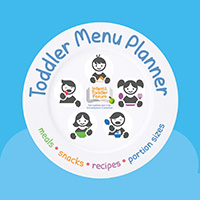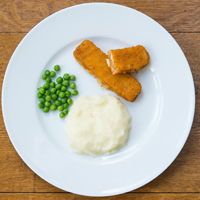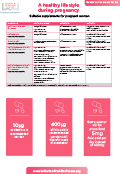
Use our Toddler Meal planning tool to ensure your 1-4 years old receives a balanced diet every day.
Find out more >
Use our toddler food tracker to check that your 1-4 year olds are getting a good balance of foods and activity
Find out more >
This educational programme for frontline professionals contains a range of practical resources on infant feeding.
Find out more >Guidance & Tips for Pregnancy
For around half of the UK adult population, diets are too high in saturated fats and sugar, and low in fibre. For some it is also low in essential micronutrients, such as iron, folate and iodine. Modern lifestyles tend to involve less physical exercise and exposure to sunshine than in the past. This contributes to obesity and vitamin D deficiency respectively. The latest UK National Diet and Nutrition Survey reports that the following nutrients are lower than recommended in the diets of some UK women of childbearing age:
- Vitamins A and D, riboflavin, folate, iron, iodine, calcium, magnesium, potassium, zinc, selenium and fibre.
Additionally, the same survey showed that about 10 per cent of women are anaemic and, depending on the season, 10 to 40 per cent are deficient in vitamin D – more women in late winter and early spring, while fewer in the summer months. Increasing sun exposure on skin during the UK summer months, April to September, will increase vitamin D levels. However, current lifestyles and modes of dress do not allow adequate vitamin D synthesis in all women. Oily fish is the only good dietary source of vitamin D, as other food sources (eggs, meat and some fortified foods) provide very small amounts.
By changing to a balanced diet following our recommendations about food groups and recommended servings, along with supplements of vitamin D and folic acid, the risk of nutrient deficiency can be resolved.
Additional supplements providing certain nutrients will be needed by some pregnant women:
- Omega 3 fats are likely to be low in the diets of women who choose not to eat one or two portions of oily fish each week.
- If you do not regularly eat this amount of fish each week, you should consider whether it is possible to increase your fish intake or take a supplement providing 200mg/day of DHA6
- Iodine – women who do not eat fish and do not have three servings of cows’ milk, cheese or yogurt per day are unlikely to reach the WHO recommended intake of 250µg iodine/day. The UK reference nutrient intakes (RNI) for pregnant women of 140µg/day of iodine has not been reviewed for many years and is now considered to be too low.
- You should consider taking a supplement suitable for pregnant women providing 140-150µg/day if you do not regularly consume iodine-rich foods. Kelp and seaweed supplements should not be taken as these may contain very high levels of iodine which can cause thyroid problems.
The following table provides an overview of the supplements suitable supplements for pregnant women, and you can print it here.
|
Supplements |
Nutrients provided |
Suitable for |
Availability |
|
Healthy Start vitamins for women |
400µg folic acid 10µg vitamin D 70mg vitamin C |
All pregnant women Free to those eligible for Healthy Start benefits |
Limited to those CCGs where staff distribute it Not available in retail outlets |
|
Folic acid only several brands available |
400µg folic acid |
All pregnant women |
Widely available in retail pharmacies, supermarkets and online |
|
Vitamin D only several brands available |
10-25µg vitamin D depending on the brand |
All pregnant women
|
Widely available in retail pharmacies, supermarkets and online |
|
Multi-vitamins and minerals suitable for pregnancy several brands available |
10µg vitamin D B vitamins including 400µg folic acid and vitamin B12 Vitamins C, E and K Carotenoid forms of vitamin A Iron, iodine, zinc, selenium, magnesium and copper Some contain omega 3 fats |
Vegetarians Pregnant women who eat little or no fish or dairy products Women and adolescents who do not eat a balanced diet |
Widely available in retail pharmacies, supermarkets and online |
|
Multi-vitamins and minerals including calcium suitable for pregnancy several brands available |
10µg vitamin D B vitamins including 400µg folic acid and Vitamin B12 Vitamins C, E & K Carotenoid forms of vitamin A Calcium Iron, iodine, zinc, selenium, magnesium and copper Omega 3 fats |
Vegan women Pregnant women who eat little or no dairy products or calcium fortified soya milks and products |
Widely available in retail pharmacies, supermarkets and online |
|
Only buy supplements from a reliable company with good quality control i.e. brands on sale in pharmacies |
|||



